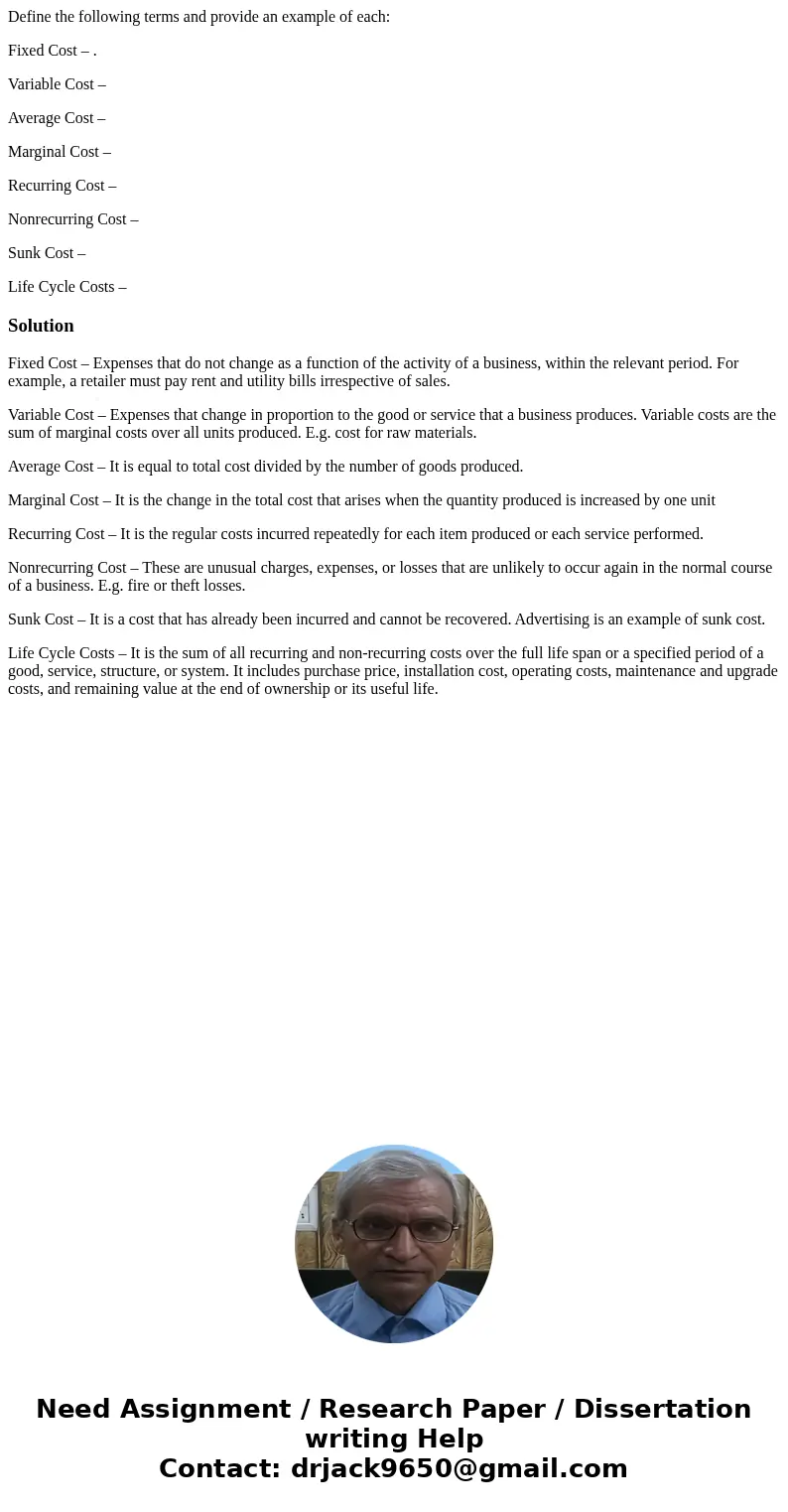Define the following terms and provide an example of each Fi
Define the following terms and provide an example of each:
Fixed Cost – .
Variable Cost –
Average Cost –
Marginal Cost –
Recurring Cost –
Nonrecurring Cost –
Sunk Cost –
Life Cycle Costs –
Solution
Fixed Cost – Expenses that do not change as a function of the activity of a business, within the relevant period. For example, a retailer must pay rent and utility bills irrespective of sales.
Variable Cost – Expenses that change in proportion to the good or service that a business produces. Variable costs are the sum of marginal costs over all units produced. E.g. cost for raw materials.
Average Cost – It is equal to total cost divided by the number of goods produced.
Marginal Cost – It is the change in the total cost that arises when the quantity produced is increased by one unit
Recurring Cost – It is the regular costs incurred repeatedly for each item produced or each service performed.
Nonrecurring Cost – These are unusual charges, expenses, or losses that are unlikely to occur again in the normal course of a business. E.g. fire or theft losses.
Sunk Cost – It is a cost that has already been incurred and cannot be recovered. Advertising is an example of sunk cost.
Life Cycle Costs – It is the sum of all recurring and non-recurring costs over the full life span or a specified period of a good, service, structure, or system. It includes purchase price, installation cost, operating costs, maintenance and upgrade costs, and remaining value at the end of ownership or its useful life.

 Homework Sourse
Homework Sourse